Hyundai Kona vs Vauxhall Mokka - Differences and prices compared
Compare performance (218 HP vs 281 HP), boot space and price (23100 £ vs 23000 £) at a glance. Find out which car is the better choice for you – Hyundai Kona or Vauxhall Mokka?
Costs and Efficiency:
Price and efficiency are key factors when choosing a car – and this is often where the real differences emerge.
Vauxhall Mokka has a minimal advantage in terms of price – it starts at 23000 £, while the Hyundai Kona costs 23100 £. That’s a price difference of around 9 £.
Fuel consumption also shows a difference: Hyundai Kona manages with 4.60 L and is therefore slight more efficient than the Vauxhall Mokka with 4.90 L. The difference is about 0.30 L per 100 km.
In terms of energy consumption, the advantage goes to the Hyundai Kona: with 14.60 kWh per 100 km, it’s hardly perceptible more efficient than the Vauxhall Mokka with 15.40 kWh. That’s a difference of about 0.80 kWh.
As for range, the Hyundai Kona performs evident better – achieving up to 514 km, about 111 km more than the Vauxhall Mokka.
Engine and Performance:
Power, torque and acceleration are the classic benchmarks for car enthusiasts – and here, some clear differences start to show.
When it comes to engine power, the Vauxhall Mokka has a clearly perceptible edge – offering 281 HP compared to 218 HP. That’s roughly 63 HP more horsepower.
In acceleration from 0 to 100 km/h, the Vauxhall Mokka is clearly perceptible quicker – completing the sprint in 5.90 s, while the Hyundai Kona takes 7.80 s. That’s about 1.90 s faster.
In terms of top speed, the Hyundai Kona performs hardly perceptible better – reaching 210 km/h, while the Vauxhall Mokka tops out at 209 km/h. The difference is around 1 km/h.
There’s also a difference in torque: Vauxhall Mokka pulls noticeable stronger with 345 Nm compared to 265 Nm. That’s about 80 Nm difference.
Space and Everyday Use:
Cabin size, boot volume and payload all play a role in everyday practicality. Here, comfort and flexibility make the difference.
Both vehicles offer seating for 5 people.
In curb weight, Vauxhall Mokka is hardly perceptible lighter – 1294 kg compared to 1370 kg. The difference is around 76 kg.
In terms of boot space, the Hyundai Kona offers evident more room – 466 L compared to 350 L. That’s a difference of about 116 L.
In maximum load capacity, the Hyundai Kona performs to a small extent better – up to 1300 L, which is about 195 L more than the Vauxhall Mokka.
When it comes to payload, Hyundai Kona somewhat takes the win – 490 kg compared to 400 kg. That’s a difference of about 90 kg.
Who wins the race?
The Hyundai Kona proves to be dominates this comparison and therefore becomes our DriveDuel Champion!
Hyundai Kona is the better all-rounder in this comparison.

Hyundai Kona
Costs and Consumption
View detailed analysis
Engine and Performance
View detailed analysis
Dimensions and Body
View detailed analysis
Hyundai Kona
The Hyundai Kona wears its personality on the outside with bold styling and sprightly handling that turns city driving into something a little more fun than a commute. It blends practical space, modern tech and sensible running costs into a compact, stylish package — a smart pick if you want flair without paying luxury prices.
details



Vauxhall Mokka
The Opel Mokka cuts a smart, modern silhouette that feels right at home in the city while still turning heads on the open road. It's a practical, easy-to-live-with crossover that blends comfy driving manners with enough flair and tech to keep daily commutes interesting — and it won’t make you regret trading up.
details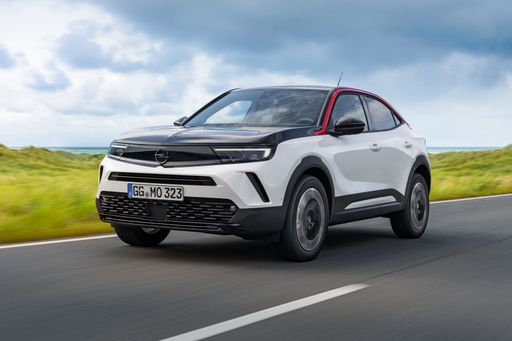
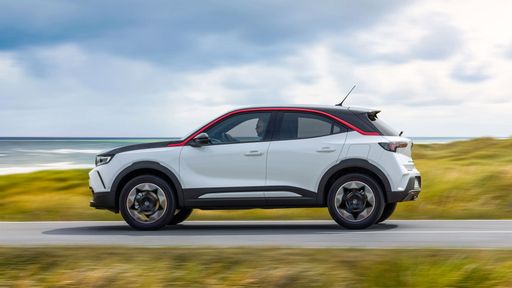
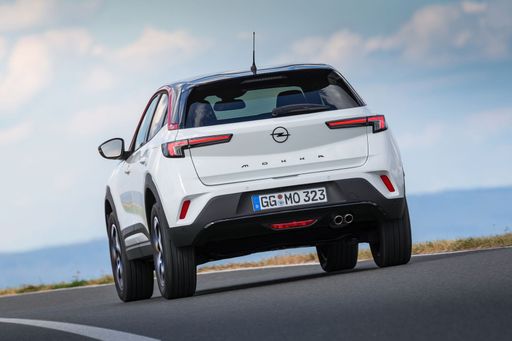
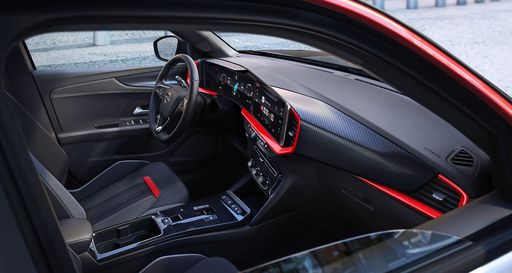
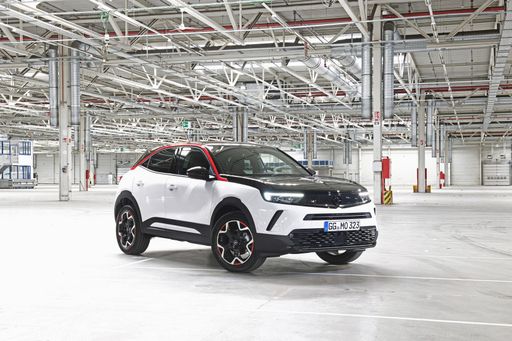
Costs and Consumption |
|
|---|---|
|
Price
23100 - 41600 £
|
Price
23000 - 40500 £
|
|
Consumption L/100km
4.6 - 7 L
|
Consumption L/100km
4.9 - 5.7 L
|
|
Consumption kWh/100km
14.6 - 16.8 kWh
|
Consumption kWh/100km
15.4 - 18.5 kWh
|
|
Electric Range
377 - 514 km
|
Electric Range
336 - 403 km
|
|
Battery Capacity
1.3 - 65.4 kWh
|
Battery Capacity
51 kWh
|
|
co2
0 - 163 g/km
|
co2
0 - 129 g/km
|
|
Fuel tank capacity
38 - 47 L
|
Fuel tank capacity
44 L
|
Dimensions and Body |
|
|---|---|
|
Body Type
SUV
|
Body Type
SUV
|
|
Seats
5
|
Seats
5
|
|
Doors
5
|
Doors
5
|
|
Curb weight
1370 - 1773 kg
|
Curb weight
1294 - 1672 kg
|
|
Trunk capacity
466 L
|
Trunk capacity
310 - 350 L
|
|
Length
4350 - 4385 mm
|
Length
4150 mm
|
|
Width
1825 mm
|
Width
1787 mm
|
|
Height
1580 - 1585 mm
|
Height
1506 - 1535 mm
|
|
Max trunk capacity
1300 L
|
Max trunk capacity
1060 - 1105 L
|
|
Payload
420 - 490 kg
|
Payload
388 - 400 kg
|
Engine and Performance |
|
|---|---|
|
Engine Type
Electric, Petrol, Full Hybrid
|
Engine Type
Electric, Petrol MHEV, Petrol
|
|
Transmission
Automatic, Manuel
|
Transmission
Automatic, Manuel
|
|
Transmission Detail
Reduction Gearbox, Manual Gearbox, Dual-Clutch Automatic
|
Transmission Detail
Reduction Gearbox, Dual-Clutch Automatic, Manual Gearbox
|
|
Drive Type
Front-Wheel Drive, All-Wheel Drive
|
Drive Type
Front-Wheel Drive
|
|
Power HP
115 - 218 HP
|
Power HP
136 - 281 HP
|
|
Acceleration 0-100km/h
7.8 - 11.9 s
|
Acceleration 0-100km/h
5.9 - 9 s
|
|
Max Speed
162 - 210 km/h
|
Max Speed
150 - 209 km/h
|
|
Torque
200 - 265 Nm
|
Torque
230 - 345 Nm
|
|
Number of Cylinders
3 - 4
|
Number of Cylinders
3
|
|
Power kW
85 - 160 kW
|
Power kW
100 - 207 kW
|
|
Engine capacity
998 - 1598 cm3
|
Engine capacity
1199 cm3
|
General |
|
|---|---|
|
Model Year
2024 - 2025
|
Model Year
2024 - 2025
|
|
CO2 Efficiency Class
A, D, C, E, F
|
CO2 Efficiency Class
A, C, D
|
|
Brand
Hyundai
|
Brand
Vauxhall
|
Is the Hyundai Kona offered with different drivetrains?
Available configurations include Front-Wheel Drive or All-Wheel Drive.
The prices and data displayed are estimates based on German list prices and may vary by country. This information is not legally binding.




